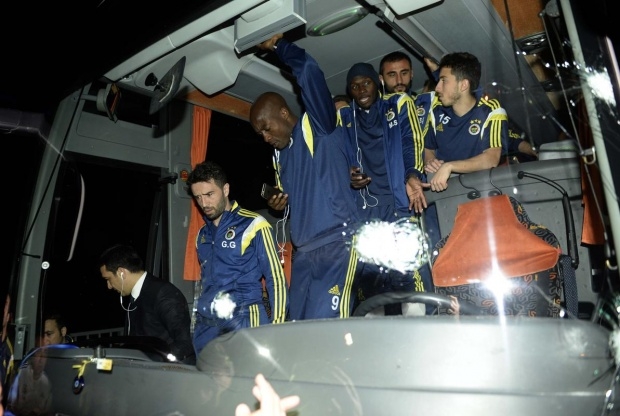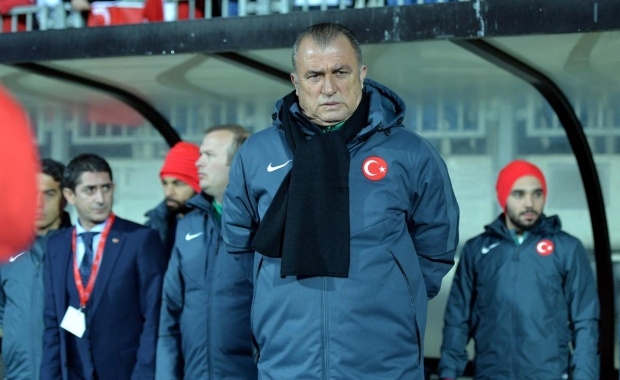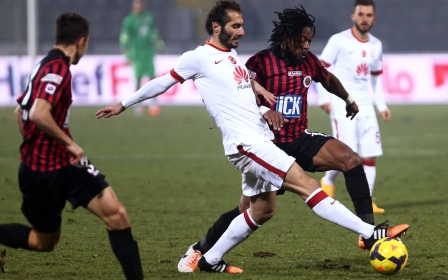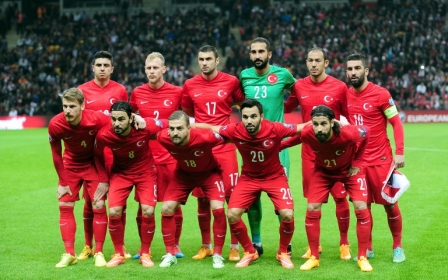Fans disillusioned as football violence strikes Turkey again
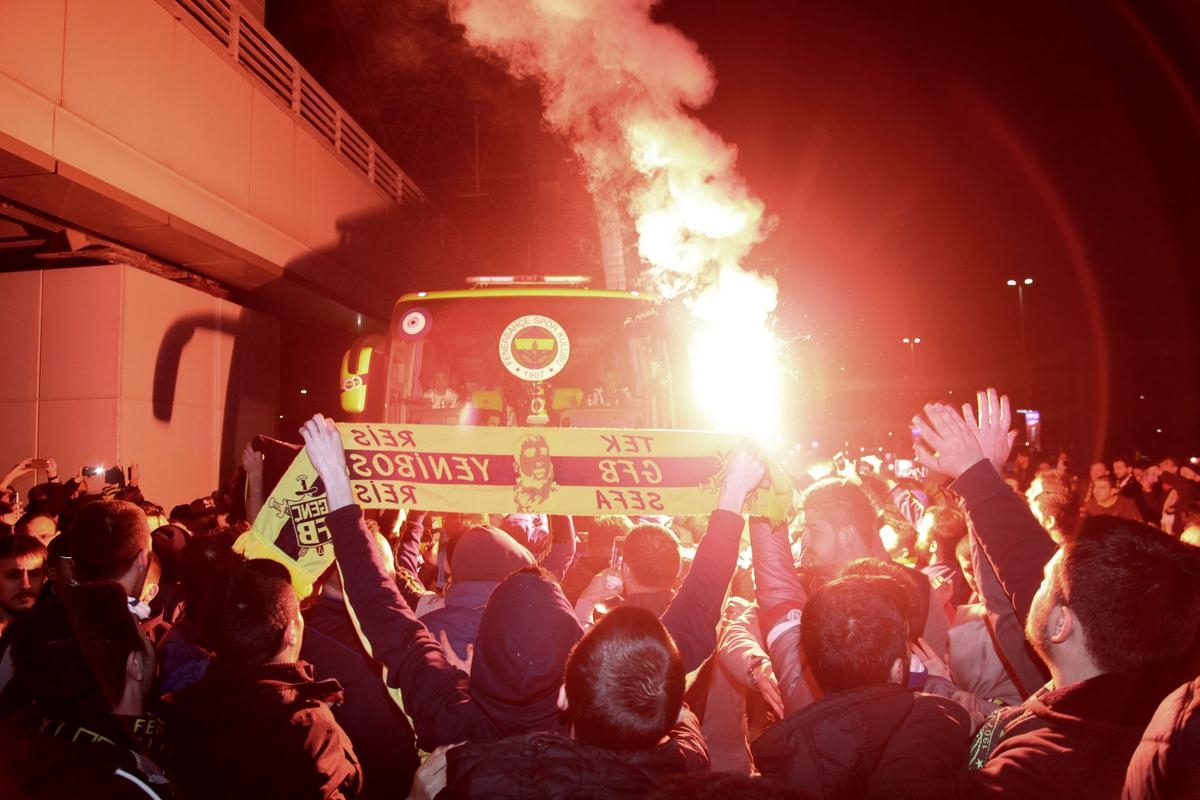
Turkish football faced a new setback on Sunday as champions Fenerbahce were ambushed in a gun attack as they travelled by bus following a match. It is only the latest in a series of blows for the sport in Turkey as it continues in its downward spiral of violence, scandal and cancellations.
As Turkey and the footballing world deals with the fallout from the incident, the reaction amongst fans has been mixed, owing in large part to the increasingly bitter relations between supporters of rival clubs. In addition to violence being an increasingly troubling issue, it seems that Turkish football has lost the trust of its most important element - the fans.
The squad was attacked by assailants armed with shotguns as it headed towards Trabzon airport immediately after defeating Rizespor in a Turkish Superlig match. The incident has called into the question the security provided for some of the country’s most established stars. The Turkish Football Federation (TFF) has come under severe scrutiny for its failure to ensure the safety of its players.
Inevitably, the Superlig has been suspended for a week, not for the first time in recent years. The turn of the decade has seen the country’s top leagues shrouded in scandal and farce, but the surge in football-related violence has led to calls for Turkey to reach a watershed moment and fix the issues endemic to its game.
The reaction in Turkey
The question of why the attack happened is still being investigated, although officials have made it clear that the incident was an attempt to undermine and damage Turkish football. TFF chairman Yildirim Demiroren announced in the aftermath that: “We believe the incident was a terrorist attack, targeting not only Fenerbahce. We decided to postpone all fixtures. We took this decision because we attach importance to the players’ psychology.”
Fenerbahce themselves demanded that all football be suspended until the matter had been resolved completely. “This is a clear end to football … We do not have any intention of playing until this attack is properly investigated,” club vice-president Deniz Tolga Aytore told a crowded press conference at the team’s base in Istanbul on Monday.
The reaction amongst fans in Turkey has been mixed to say the least, however. Whilst most have condemned the attack, a large number have accused Fenerbahce of exaggerating the incident, turning the “throwing of stones” into a gun attack, or declaring the shooting was comeuppance for alleged match-fixing by the club in 2011.
Although police confirmed that the bus came under shotgun fire, many have refused to accept this version of events.
Herein lies a greater issue. The match-fixing scandal that erupted in the summer of 2011 saw Fenerbahce embroiled in a war of words with Trabzonspor, the local team of the region where the shooting took place. Trabszonspor finished runners-up to Fenerbahce in one of the most closely-contested title races in history, yet as the latter were subsequently found guilty of match-fixing, Trabzonspor argued that the league title should have gone to them. Their case was dismissed and tensions have mounted since.
All faith has been lost in those at the very top of the Turkish game, leading to many fans calling for a cleansing of the sport and the need for it to be reclaimed. Fenerbahce are seen as a symbol of the dirty politics, having been at the epicentre of the recent scandal and seemingly only being given a slap on the wrist by the TFF.
Added to the mix are the fierce rivalries of fellow Istanbul powerhouses Galatasaray and Besiktas. The bitterness has seen death threats sent to players, national team training camps interrupted and players too intimidated or upset to take to the field.
What does this mean for the future of Turkish football?
Although the future may seem bleak for football in Turkey, an increasing number of voices are calling for a period of soul searching and reflection to put aside the rancour and violence that have blighted the last few seasons. It has been suggested that the animosity could be eradicated somewhat by a public display of unity by Fenerbahce and Trabzonspor in particular.
Whilst a show of unity may prevent further tension boiling over in the short term, a more enduring solution is necessary to make sure such incidents aren’t witnessed again. In the long term, Trabzonspor and Fenerbahce will have to come to an agreement over the outcome of the 2010/11 league title. As European football’s governing body UEFA has already rejected numerous claims and appeals by Trabzonspor to hand the title over to them it looks as though the winners’ medals will stay in Istanbul.
Whilst this may only add to friction, the option of wiping the slate clean after this shocking attack could be an incentive to put the dispute aside. After Internazionale were awarded the Italian Serie A title in 2006 following previous champions Juventus’ involvement in a match-fixing scandal, animosity between the two reached an all-time high. Thus, the ill feeling can be difficult to put to bed, although it may be necessary for the future of Turkish football.
The Turkish national team can also play a role. A competitive and representative national squad would go a long way towards bringing fans together to unite behind one unit. With many in the squad considered mercenaries or lambasted for perceived failure in competition, the dischord aimed at the Turkish team has spilled out into domestic football, which provides an easier target.
National team manager Fatih Terim has an important role to play in the footballing side, but ultimately the TFF could hold the key to restoring national pride in a football-obsessed country that has become disillusioned with the state of its teams, officials and players.
New MEE newsletter: Jerusalem Dispatch
Sign up to get the latest insights and analysis on Israel-Palestine, alongside Turkey Unpacked and other MEE newsletters
Middle East Eye delivers independent and unrivalled coverage and analysis of the Middle East, North Africa and beyond. To learn more about republishing this content and the associated fees, please fill out this form. More about MEE can be found here.


